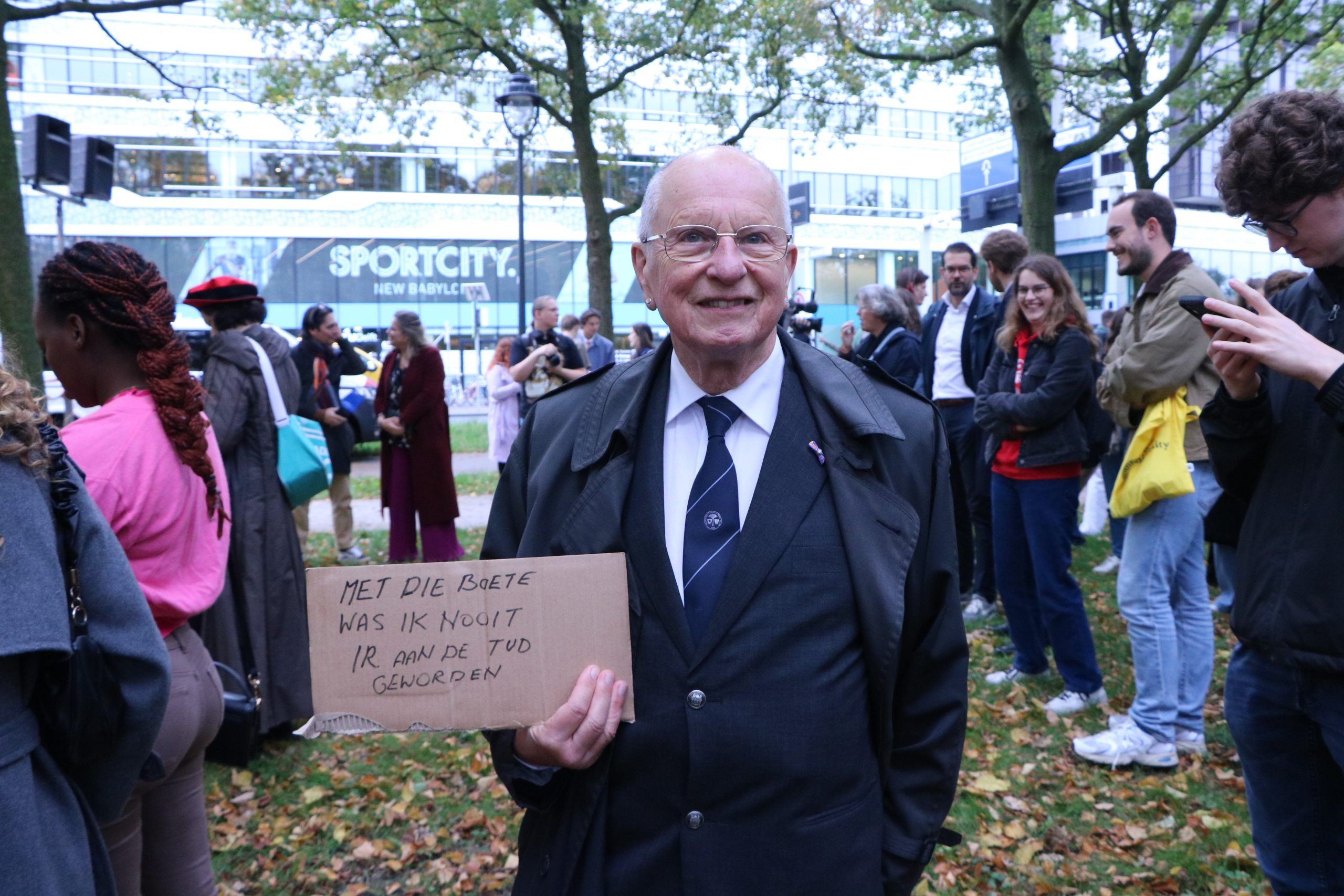One person really stood out last Friday at the protests in The Hague against the long-term study penalty. In the middle of the crowd stood a man who, at 80 years old, was well outside the average age: engineer Chris Zijdeveld, who has studied at TU Delft.
Chris Zijdeveld. (Photo: Janneke Ringens)
He understood that it looked a bit strange to be one elderly man among all the students. His presence evoked smiles among the students and he was constantly asked “What are you doing here?” Zijdeveld explains: “As an old guy who experienced himself how stupid it is to have to graduate quickly, I wanted to be here.” The students waved flags, called out slogans and held their protest boards high in the air with outstretched arms. The engineer, who retired a long time ago, joined them with just as much conviction. While the young demonstrators made their dissatisfaction known, in Zijdeveld’s case it was his personal experience that drove his protest.
The importance of a broad development
Zijdeveld, who studied at TU Delft in the 1960s and 1970s, sees himself as living proof that a longer period of study can lead to personal growth. “I took 10 years to complete my Mechanical Engineering course, which in theory you could do in five years,” he said. He also worked as a student and calls this “an incredibly good investment”. The retired engineer is concerned that the current generation of students have less and less space to develop themselves outside their studies. He believes that the long-term study penalty is forcing students to spend all their time studying their books and is stopping them from building up experiences outside their subject.
‘It is making society poorer’
“It is making society poorer,” said Zijdeveld. He is afraid that the long-term study penalty will turn students into ‘super specialists’. While this sounds positive, he does not believe that this is the case. “Super specialists know a lot about very little. It’s better to have people that know a little about a lot.” He believes that creating a generation of one-sided specialists will make society less flexible and innovative, while a wide range of knowledge is what is needed for progress.
Message to politicians
“If the Cabinet withdraws this law, my confidence in them will rise.” Zijdeveld’s message to politicians is clear. Education goes beyond just getting diplomas. It is about human development and creating people who can think critically, solve problems, and understand the world around them. Along with all the students present, Zijdeveld called on the Cabinet to withdraw the law and to support students in their growth. He argues that “If you think education is important, you will create the wise people of the future. If you do not act on this, you will create dumb-asses.”
By Janneke Ringens



Comments are closed.